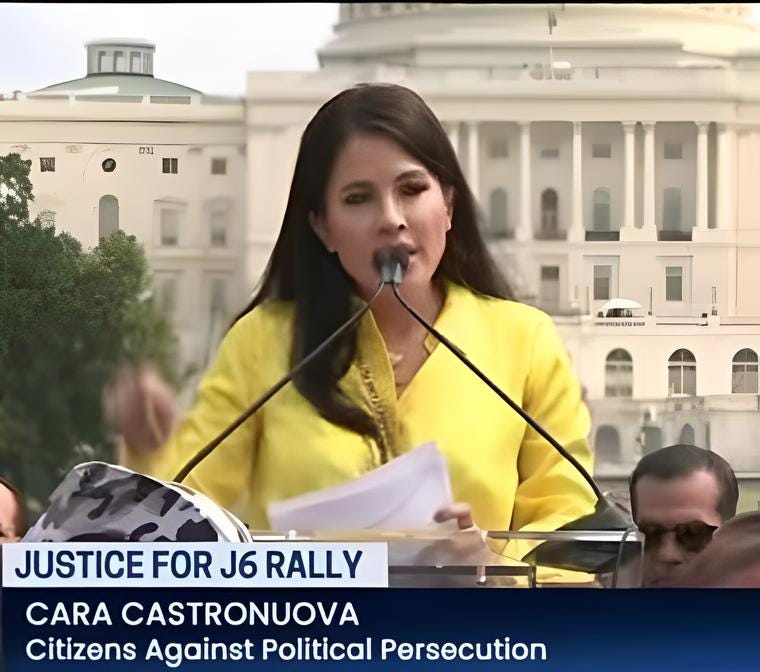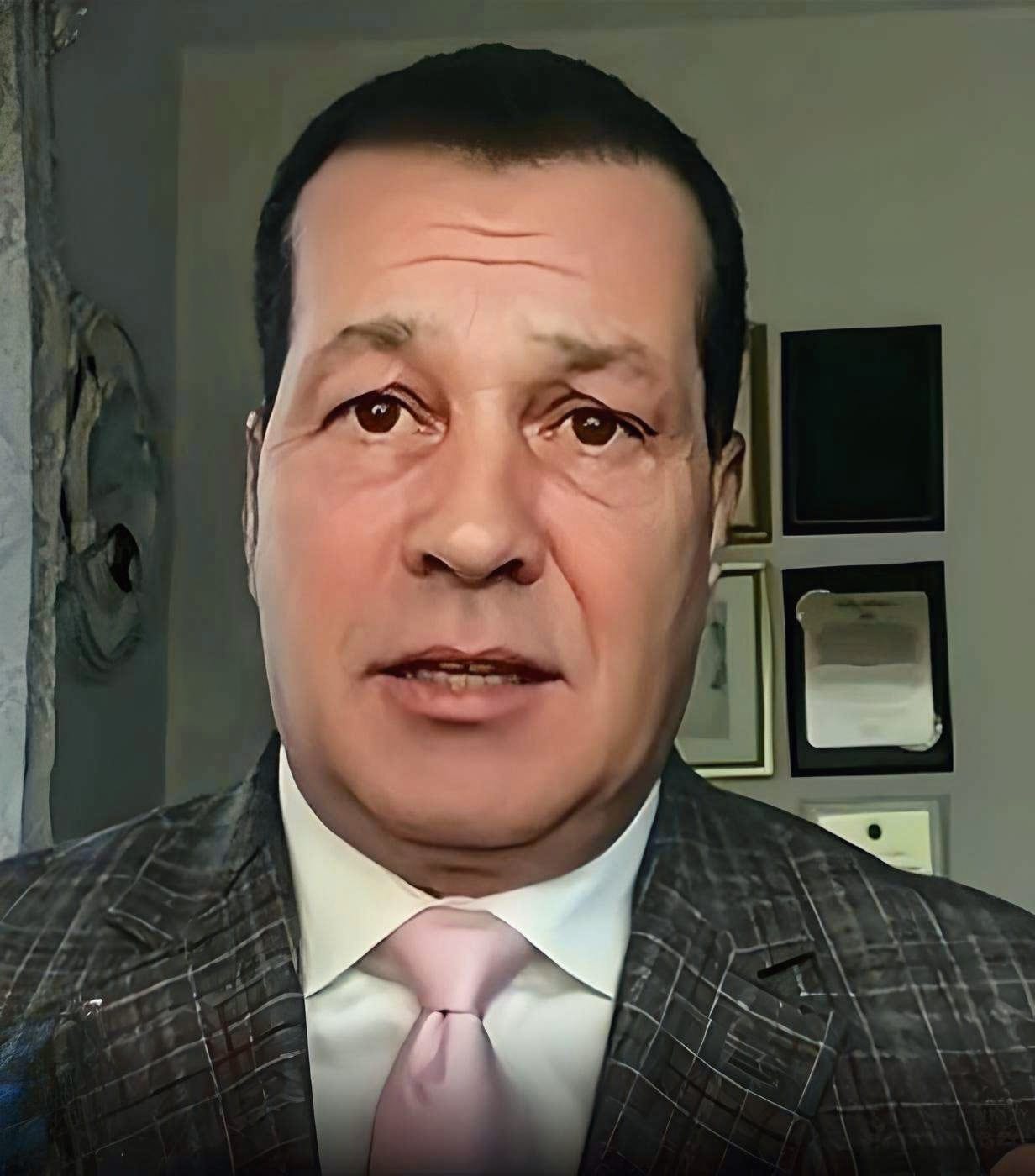EDNY Judge Ramon E. Reyes' Ruling Under Fire: U.S. Senate Election Ruling Draws Parallels to Dictatorships
'Comrade Reyes': Cara Castronuova's Election Dreams Crushed Under Judicial Hammer and Sickle
By Richard A. Luthmann
In a Decision and Order fraught with controversy, Judge Ramon E. Reyes, Jr. of the Eastern District of New York has denied Cara Castronuova a spot on the Republican Primary ballot for the office of U.S. Senator, sparking allegations that the New York electoral system mirrors those of North Korea and China.
Judge Reyes’ directive that Castronuova’s supporters can use a write-in option in June's primary, despite her exclusion from the ballot, is under fire because it is legally and factually incorrect. This oversight, whether a mistake or deliberate misinformation, has sparked allegations of either incompetence or judicial activism favoring established political powers.

“This is truly a systematic failure resembling the authoritarian controls that we see in communist countries like North Korea and China,” said John Tabacco, Cara Castronuova’s co-plaintiff and a disenfranchised Republican Party voter.
Legal documents reveal a startling dismissal of Castronuova's challenge against the New York State Republican Committee, their Chairman Ed Cox, and the New York State Board of Elections, effectively blocking her from appearing on the June primary ballot.
If Judge Reyes’ ruling stands, there will be no Primary Election under New York Election Law. Instead, RINO and Letitia James supporter Michael Sapricone will advance to the November General Election unopposed. He will face incumbent Democrat Kirsten Gillibrand, who seeks re-election for a third term.
Judge Reyes' Errors and Oversights
Critics argue that Judge Reyes’ Decision and Order are larded with misinformation and reflect the ratification of a complex, suppressive system akin to those seen in undemocratic regimes. Judge Reyes is wrong about the law and the facts throughout his 30-page diatribe. For example, Judge Reyes wrote:
Under NYEL § 16-102, candidates may bring an expedited action in state court seeking review of NYSBOE’s decision…Zobel v. New York State Bd. of Elections…(in such an action, the court considered and rejected a constitutional challenge to the “town/city” provision). If that proceeding is unsuccessful, candidates may still attempt to persuade voters to write their names on the ballot on the day of the Primary in June…NYEL § 6-166. Accordingly, there are many opportunities for a candidate to establish they have the support of potential voters in running for the Senate seat.
However, that information is blatantly false. If Castronuova does not qualify for the ballot, there will be no Republican Party Primary Election in June and no write-in opportunity. Judge Reyes specifically used these false facts in denying Candidate Castronuova the injunctive relief she requested:
Plaintiffs also claim they are unable to “campaign, fundraise[,] and build support” on Ms. Castronuova’s behalf absent injunctive relief…While it is true that the petitioning process, and defending the petition against challenges and litigation, poses logistical limitations to the time and funds available to campaign, there are no rules, orders or restraints in place legally prohibiting Plaintiffs from campaigning. As Defendants noted on the record at the April 10 hearing, Plaintiffs may indeed campaign for the election of Ms. Castronuova in the Primary. Also, as Defendants also noted at the hearing, should Ms. Castronuova’s name not appear on the ballot, her supporters that wish to vote for her in the Primary may indeed write her name in. Therefore, the balance of the parties’ respective harms and interests weigh against issuing an injunction.
Judge Reyes' suggestion that Castronuova's supporters write her name in also blatantly ignores established U.S. Supreme Court precedent.
"The realities of the electoral process...strongly suggest that 'access' via write-in votes falls far short of access in terms of having the name of the candidate on the ballot," the U.S. Supreme Court stated in Lubin v. Panish. The High Court further underscored the inadequacy of write-in options as a proper electoral substitute in precedents like Anderson v. Celebrezze.
Denied Due Process: The Mark of Electoral Inequity
Castronuova also argued that the New York Election scheme violated the due process rights of her supporters because they never had notice or an opportunity to be heard under the available proceedings. Unsurprisingly, Judge Reyes disagreed, saying:
To determine whether there has been a Due Process Clause violation, “it is necessary to ask what process the State provided, and whether it was constitutionally adequate.” Rivera-Powell v. New York City Bd. of Elections…quoting Zinermon v. Burch….When the “deprivation [of life, liberty, or property] is pursuant to an established state procedure, the state can predict when it will occur and is in the position to provide a pre-deprivation hearing,” whereas when the conduct is “random and unauthorized, the state satisfies procedural due process requirements so long as it provides a meaningful post-deprivation remedy.” Rivera-Powell (finding established procedures under § 16-102 that allow for the “opportunity to obtain full judicial review by way of a special proceeding” as constitutionally sufficient).
Contrary to Reyes' claims that Castronuova's supporters had ample notice and opportunity to be heard, the actual structure of New York's election law provides no mechanism for citizen "validators" to contest the denial of ballot access. Section 16-102 of the Election Law, referenced by Judge Reyes in his ruling, only provides for two types of proceedings.
One proceeding is to “invalidate” the ballot access of a political candidate, which can be brought only by a Party Chairman, an Aggrieved Candidate, or a Citizen-Voter Objector. The other proceeding is to “validate” a candidacy, which may only be brought by a candidate.
“There is nothing in the New York State Election Law that allows me, a Castronuova Designating Petition signer, to validate the ballot access for the candidate of my choice. That’s my right, but the New York law is illegal because it gives me no avenue for constitutional relief. It’s a fundamental legal concept from Marbury v. Madison that we all learn in high school civics - where there is a right, there is a remedy,” Tabacco said.
Tabacco says Judge Reyes failed to recognize the core principles of due process, as articulated by the U.S. Supreme Court in Fuentes v. Shevin: "The central meaning of procedural due process...is clear, as parties whose rights are to be affected are entitled to be heard, and in order that they may enjoy that right they must first be notified."
“If there were an Election Law proceeding I could bring to validate the candidate of my choice along with the almost 16,000 other petition signers, then there would be no gripe. There isn’t, and now the New York law, compounded by a single judge's decision, doubly disenfranchises a broad group of Castronuova supporters,” Tabacco said.
Judge Reyes' decision not only sidelines voters but also appears to prioritize the opaque interests of the entrenched political establishments over bright-line constitutional mandates. This approach contradicts the fundamental safeguards to protect electoral integrity and voter rights.
Accusations of judicial bias against Judge Reyes also suggest his rulings may be unduly influenced by political loyalties rather than judicial impartiality. This concern resonates with practices observed in authoritarian states.
“Comrade Reyes got his marching orders from the UniParty. Letitia James is the opposing counsel. Reyes is an activist judge, plain and simple, and this decision makes it clear. It was a hit-job because Sapricone was nominated to lose,” a Staten Island Republican operative said.
However, not everyone believes Judge Reyes got it wrong on purpose.

“For all intent and purposes, it’s his first Election law case. He took what Ed Cox’s lawyers told him at face value. Now he looks like Angel Hernandez, that he’s just guessing out there,” said a well-known Manhattan Democratic consultant under conditions of anonymity.
Whether mistake, incompetence, or judicial activism, Judge Reyes’ ruling raises alarming questions about the future of election integrity in New York. A source inside the Castronuova camp says they are already preparing an emergency injunction for the Second Circuit Court of Appeals in Manhattan, which may be filed at any time.
Castronuova seeks judicial intervention before military mail-in ballots are printed for the June 25 Republican Party Primary.




It’s been long overdue, time to clean house….
Its New York - no question of judicial corruption.